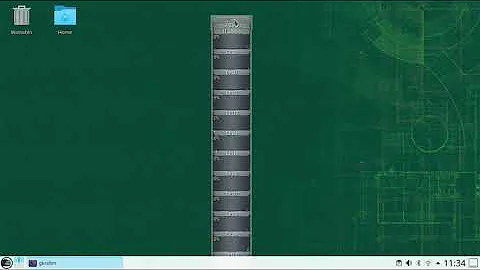openSuse /etc/profile.local file does not exist
The /etc/profile.local file used to be the location to make system specific changes that would not be overwritten when /etc/profile would get an update.
Your system might still source the file if it exists, you could either check /etc/profile to see if it does (search for the profile.local filename, or just create the file and try out.
However, if you have a directory /etc/profile.d, and if your /etc/profile has something like (this is from Ubuntu 12.04) the following in it:
if [ -d /etc/profile.d ]; then
for i in /etc/profile.d/*.sh; do
if [ -r $i ]; then
. $i
fi
done
unset i
fi
then this mechanism sources (. $i) each of the files found in that directory.
That is a more modern solution to the single .local file (with the advantage of different packages being able to drop in their files and remove them as needed without breaking something else). If your OpenSUSE has something like that, you can just create a file /etc/profile.d/your_name.sh and put the required code in there.
If you don't have all of that you can add the lines directly to /etc/profile, but you do run the risk of loosing your changes on a package upgrade.
Related videos on Youtube
Harbir
Updated on September 18, 2022Comments
-
 Harbir over 1 year
Harbir over 1 yearI am referring to the following URL Setting the JAVA_HOME
I am interested in the last solution given by Nils, that edit the /etc/profile.local file, this will set it for all the users. The question is that I am using openSUSE 12.3 and it does not have /etc/profile.local.
What should be done in this case?
-
 Harbir almost 10 yearsI have tried this, as there is no file profile.local in /etc/ ,I have created a new /etc/profile.local and edited it with JAVA_HOME=/usr/java/jdk1.7.0_05 export JAVA_HOME
Harbir almost 10 yearsI have tried this, as there is no file profile.local in /etc/ ,I have created a new /etc/profile.local and edited it with JAVA_HOME=/usr/java/jdk1.7.0_05 export JAVA_HOME

![[SOLVED] Fix bash: /etc/profile.d/vte.sh: No such file or directory - Ubuntu Linux](https://i.ytimg.com/vi/rGKN1gH071E/hq720.jpg?sqp=-oaymwEcCNAFEJQDSFXyq4qpAw4IARUAAIhCGAFwAcABBg==&rs=AOn4CLCnExPUoDUbBuhPlaX8qU9KE2zqAA)


